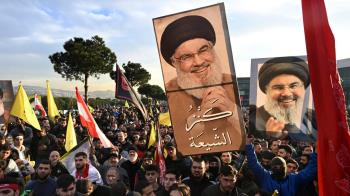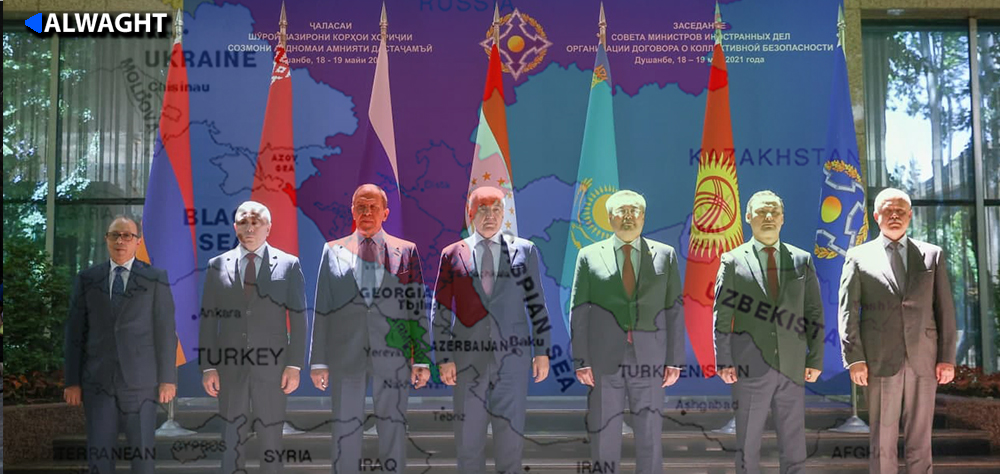Alwaght- These days the conditions in Central Asia region as the Russian backyard are not as calm and stable as the past.
The borders between Tajikistan and Kyrgyzstan are instable and last week Kyrgyz leaders said that in border clashes with Tajikistan 13 were killed. Kyrgyzstan-Tajikistan war consequences have influenced other areas, with Bishkek recently saying that the country’s parliament is debating exit from the Russian-led Collective Security Treaty Organization (CSTO).
The CSTO is one of the most active military and multifunctional organizations in Central Asia and the Caucasus, established by Russia after the collapse of the Soviet Union in order to increase its military capacities and keep the countries of the region united.
Now with the speculations about Kyrgyzstan withdrawal from this regional alliance, it seems that Central Asia is facing a set of new developments.
The CSTO: from foundation to inefficiency
Since the collapse of the Soviet Union, Moscow has sought to remain a major player in the region by making various bodies and arrangements. One of these bodies is the Collective Security Treaty Organization, which was formed on May 15, 1992 in Tashkent with the participation of Armenia, Kazakhstan, Kyrgyzstan, Tajikistan, Uzbekistan and Russia within the Commonwealth of Independent States.
Azerbaijan joined the treaty on September 24, 1993, Georgia on December 9, and Belarus on December 31, 1993. The treaty officially entered into force on April 20 of that year. The treaty confirmed the willingness of all participating states to refrain from using or threatening to use force. The signatories had no right to join another military treaty, and a military attack on one of the members was considered an attack on all members.
The treaty was for a period of five years if it was not extended. On April 2, 1999, the presidents of Armenia, Belarus, Kazakhstan, Kyrgyzstan, Russia and Tajikistan signed a protocol extending the treaty for another five years. But Azerbaijan, Georgia, and Uzbekistan refused to sign and withdrew from the treaty. At the same time, Uzbekistan joined the Guam Organization for Democracy and Economic Development which was formed by Azerbaijan, Georgia, Moldova and Ukraine in 1997 to counter Russian influence in the region.
On October 7, 2002, six members of the treaty signed a charter and renamed the CSTO to Commonwealth of Independent States. The members held several military drills in 2005. In that year, Uzbekistan abandoned the Guam organization and built close ties with Russia. On June 23, 2006, President Vladimir Putin of Russia announced that Uzbekistan became a permanent member of the treaty. The treaty has an observer role in the UN General Assembly. At present, the members of the Collective Pact are Armenia, Belarus, Kazakhstan, Kazakhstan, Russia, and Tajikistan.
The CSTO was changed to an international organization on September 18, 2003, following a decision by the heads of state to do so. The main goal of the organization is to modify and deepen military-political cooperation and develop multilateral structures and cooperation processes to ensure the national security of member states on a common basis, and provide military assistance to member states that have been victims of violence. These days, Tajikistan-Kyrgyzstan border developments are bringing the alliance to the spotlight. In fact, while Kyrgyzstan expected the regional security pact to de-escalate border tensions with Tajikistan, the failure of the organization to step in has pushed the Bishkek to debate quitting the regional body.
On the other hand, the recent meeting of the organization, hosted by Tajikistan, took place without any reference to the country's border tensions with Kyrgyzstan. Therefore, it seems that the alliance suffers from differences, inconsistencies, and different orientations of the members.
Also, the disputes among the member states on a set of issues including borders, water resources, and trade ties are among the challenges of the bloc that have so far set up roadblocks ahead of its development and efficiency. The recent clashes between Tajikistan and Kyrgyzstan released the extent of differences of the member states.
Russian backyard influenced by foreign interventions
Although Kyrgyzstan itself raised the withdrawal from the organization, the moves by the foreign actors should not be overlooked in this decision.
Claiming to have been ignored in the body, Uzbekistan withdrew in 2012.
In general, by examining the foreign policy developments of the CSTO member states, we find that whenever their relations with the West and Western institutions have been good, their relations with the regional, and specifically Russian-led, organizations have witnessed destination if not separation. This is vice versa when they have tense relations with the West.
In recent months, when the US troops' withdrawal from Afghanistan has been raised, some experts talked about the possibility of the US playing a more active role in Central Asia. And with start of the withdrawal process, the American media run a new wave of speculations about a possible new US military base in that region. The base, analysts speculate, can play as an alternative to those being closed in Afghanistan and also back up what remains of the US non-combat forces and also the US-supported forces in that country. The base will also serve as a ground for cooperation with the Central Asian states to secure Afghanistan’s northern borderlines. Still, many agree that the new base is meant to counter the Russian power in Central Asia before serving Afghanistan security.
The New York Times recently cited American officials as saying that Kazakhstan, Uzbekistan and Tajikistan were possible options for hosting a US military base. According to some other media sources, some consultations between US officials and these countries have recently taken place. Negotiations with the foreign ministers of the countries of the region, which were held last week within the framework of the P5 + 1 platform, are a platform towards this aim.
Meanwhile, another issue related to Kazakhstan and Tajikistan is their membership in the CSTO. These countries currently host Russian military bases and shared networks of defense facilities. Naturally, the establishment of a US military base in one of these two countries requires more complex terms, such as the agreement of this organization. However, Uzbekistan, which is not currently a member of the regional security organization, appears to be readier than others for hosting the base.
It was in reaction to the news of the US base that last month Russian Defense Minister Sergey Shoygu visited Tajikistan and Uzbekistan. Tass news agency, citing Russian officials, reported about “preparation of a strategic military partnership for 2021-2025” when the two countries’ defense ministers met. If implemented, the agreement can affect the US base establishment in Uzbekistan. Although it is not clear yet that Washington will complete the withdrawal process as it promised, what is influential on the upcoming developments and the American game in Central Asia is the US-led foreign forces’ remaining or withdrawing from Afghanistan.



























